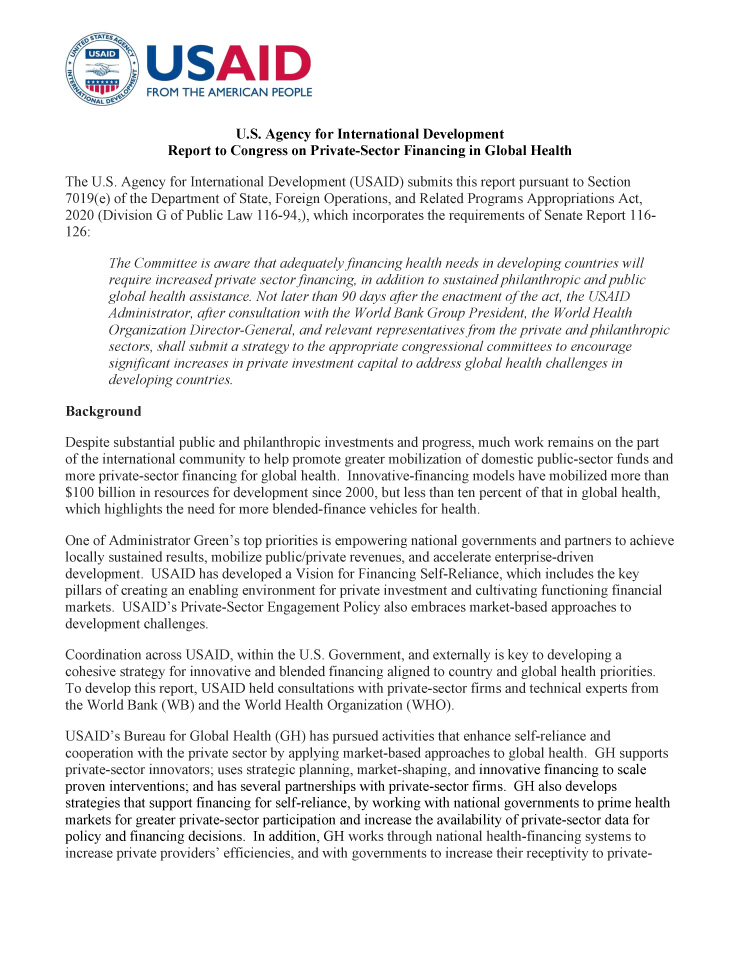Speeches Shim
The U.S. Agency for International Development (USAID) submits this report pursuant to Section 7019(e) of the Department of State, Foreign Operations, and Related Programs Appropriations Act, 2020 (Division G of Public Law 116-94,), which incorporates the requirements of Senate Report 116- 126:
The Committee is aware that adequately financing health needs in developing countries will require increased private sector financing, in addition to sustained philanthropic and public global health assistance. Not later than 90 days after the enactment of the act, the USAID Administrator, after consultation with the World Bank Group President, the World Health Organization Director-General, and relevant representatives from the private and philanthropic sectors, shall submit a strategy to the appropriate congressional committees to encourage significant increases in private investment capital to address global health challenges in developing countries.
Despite substantial public and philanthropic investments and progress, much work remains on the part
of the international community to help promote greater mobilization of domestic public-sector funds and
more private-sector financing for global health. Innovative-financing models have mobilized more than
$100 billion in resources for development since 2000, but less than ten percent of that in global health,
which highlights the need for more blended-finance vehicles for health.
One of Administrator Green’s top priorities is empowering national governments and partners to achieve
locally sustained results, mobilize public/private revenues, and accelerate enterprise-driven
development. USAID has developed a Vision for Financing Self-Reliance, which includes the key
pillars of creating an enabling environment for private investment and cultivating functioning financial
markets. USAID’s Private-Sector Engagement Policy also embraces market-based approaches to
development challenges.
Coordination across USAID, within the U.S. Government, and externally is key to developing a
cohesive strategy for innovative and blended financing aligned to country and global health priorities.
To develop this report, USAID held consultations with private-sector firms and technical experts from
the World Bank (WB) and the World Health Organization (WHO).
USAID’s Bureau for Global Health (GH) has pursued activities that enhance self-reliance and
cooperation with the private sector by applying market-based approaches to global health. GH supports
private-sector innovators; uses strategic planning, market-shaping, and innovative financing to scale
proven interventions; and has several partnerships with private-sector firms. GH also develops
strategies that support financing for self-reliance, by working with national governments to prime health
markets for greater private-sector participation and increase the availability of private-sector data for
policy and financing decisions. In addition, GH works through national health-financing systems to
increase private providers’ efficiencies, and with governments to increase their receptivity to private2
sector participation in health care. This report focuses on current and proposed efforts to accelerate
private-sector financing for global health.


Comment
Make a general inquiry or suggest an improvement.